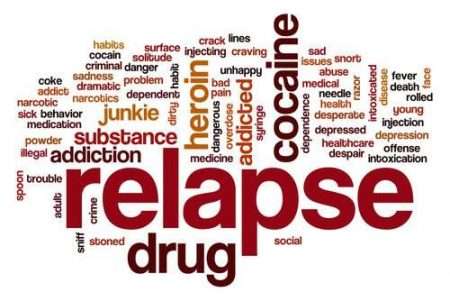Fast Facts on Alcoholics Anonymous1:
- There are an estimated 4,661 UK AA meetings and 723 English-speaking groups in Continental Europe.
- AA membership is estimated at between 23,000 and 25,490 in the UK
- 75% of members stated they have been sober for at least 2 years
- 33% of those with up to 6 months of membership had up to 6 months of sobriety
They say, it works if you work it, but where is the evidence?
Up until the early 90’s, research on Alcoholics Anonymous (AA), the Twelve Step programme of recovery was virtually non-existent.
There was a need for well-designed studies to research and evaluate the programme. Today, research on the AA programme has proliferated, where many rigorous studies have taken place.
Sadly, this has been underreported in mainstream media and mainly reported in academic journals, which make them largely inaccessible to the general public. This can make it hard for those struggling with addiction to weigh up the evidence.
The problem
It’s hard to find anyone who does not have a preconceived notion or opinion about AA. Many say it has been their salvation, whilst others tend to dismiss it quickly as a religious cult.
Many health professionals outside of substance addiction, remain sceptical or critical of AA. You can see evidence of this in various reviews, negative comments on Psychology Today’s blogs or articles posted online to media websites.
This is often because doctors are trained to use science, not spirituality, and that psychiatrists were educated for over 8 years in Freud and Psychoanalysis, not God and a higher power.
It is therefore important to distinguish scientific fact from hearsay.
So, here in this article, we thought we would share with you the evidence around the 12 Step Fellowship of AA, what was discovered and the science behind it.
Programme of Attraction
Alcoholics Anonymous has only one requirement for membership and that is the desire to stop drinking.
AA traditionally identifies as a “program of attraction” – which follows the belief, that if you work through the 12 Steps sincerely it will always be able to serve you. Also, if you do not like it, then you are free to try something else.
Whilst working the programme you are free to seek outside help (therapy). AA does not ‘teach’ or ‘demand’, it spreads the word through suggestions and the power of example.
It is a completely rule-free organisation that operates through the 12 Traditions, a series of guidelines for its dealings with members, groups and the world at large. At a local level, group members will decide issues (for example where the meeting is to be held), through a ‘Group Conscience Meeting’.
The Evidence: Project MATCH
In 1990 a research team at Yale University was putting together a very ambitious psychotherapy study, which involved comparing three treatment programmes for individuals who had the diagnoses of alcohol misuse and alcohol dependence.
It was to be an 8-year clinical trial investigating the effectiveness of the 12 Step Programme against two other well-known therapies – Cognitive Behavioural Therapy (CBT) and Motivational Enhancement Therapy (MET) – for alcohol use disorders.
Up until this point, CBT and MET had already been studied fairly extensively, in contrast to the 12 Step facilitation, which had not.
The expectation of the outcome of this study was that the 12 Step Method would not show good outcomes and if it did, it would only be for those experiencing the most severe alcohol use disorders.
However, nevertheless, seven years later, the data for Project MATCH was published.
The study summarised the effectiveness of the three treatments for patients one year following treatment.
Study Outcomes:
The surprising outcome was that all three treatments were effective in reducing drinking and increasing abstinence at three months, six months, nine months and 12 months following treatment, with the 12 Steps model having a slight advantage over both CBT and MET.
This astounded mental health professionals who had previously believed that many of those suffering from alcohol and drug addiction was “doomed to relapse.”
But as MATCH demonstrated, this was not the case.
One year following treatment, those who underwent outpatient treatments were sober slightly more than 80% of the time. Those who went into aftercare services remained sober 90% of the time.
The study proved that the 12 Step model was equally effective for individuals diagnosed as alcohol misusers, compared to full-fledged alcoholics.
Since then, the study has been adapted for those whose issue is “polysubstance misuse”, a term applied to the misuse of more than one addictive substance at a time, including alcohol.
In general, treatments that include the 12-step model have also been found to work for the polysubstance misuser.

AA membership surveys
In the past 15 years, two surveys (in 2007 and 2011) were completed voluntarily by men and women currently attending AA meetings.
What can we learn from the numbers?
- 72% of this group had been sober for more than a year
- A third had been sober for more than 10 years
- The more engaged and “working it” the better the results
So Why Does AA work?
For some people, seeing the numbers is not enough. They want to know why it works- what they can do similarly.
It is generally considered that the AA programme, as embodied in the 12 Steps, works through its emphasis on five important ideas:
- Honesty – rigorous honesty is often mentioned in AA literature. Alcoholics are experts at self-deception and denial.
- Openness to new ideas is an important attitude in enabling change to take place.
- Willingness to change, without compromise, is essential: ‘Half measures availed us not’ (AA Big Book)
- Connection – meeting and interacting with other recovering alcoholics is fundamental to accessing the experience, support and example of others. The AA movement began because two men met in a hotel room in 1935 and discovered that talking together kept them sober.
- Spirituality – the terrible power of alcoholism to destroy lives requires a more powerful response than one individual can give. Spirituality means the alcoholic is no longer alone.

Research Studies into the 12 Steps
Proven to be as effective as other forms of rehab programmes for alcohol
A new review of previous studies by Cochrane; an organisation renowned for its analysis of scientific research has shown that addiction treatment programmes based on the Alcoholics Anonymous model, works well, if not better than other scientifically proven treatments for alcoholism.
“I don’t think it’s something unique to AA, as if it’s got some sort of magic,” Kelly said. “It’s rather that the magic of AA is that it’s everywhere and mobilizes these therapeutic mechanisms in a very strong, socially supportive network of recovery support.” – John Kelly; a Researcher at Harvard who led the Cochrane review in an interview for vox.com.
The Cochrane review in summary:
- The Cochrane review found, there was more solid evidence for the finding that AA and 12-step treatment work at least as well as alternatives
- Cochrane’s findings only apply to alcohol addiction
- The findings also don’t mean that AA and the 12 steps work for everyone
- About a third of people maintain recovery from alcohol addiction due to AA, another third get something out of AA but not enough for full recovery, and another third get nothing at all.
AA and the Mind
Why do people feel better after a meeting?
When addiction has damaged us so much that we finally seek help, we are to a great extent in a near primitive state where our actions and responses are governed by the basic, primal part of our brain – the amygdala, the ‘back brain’ where the choice is usually ‘freeze, fight or flight’. Survival is the priority. At such a time, our overriding feelings are likely to be fear and anger.
Recovery helps us to improve and to start using the more sophisticated parts of the brain again.
When we attend a meeting, we usually find ourselves doing three things:
- Reading the Big Book and greeting newcomers, making tea, answering questions.
- Sit and listen to other people without interrupting, and perhaps even share ourselves,
- Experience others’ strength and hope and the power of their example.
- Feel encouragement, gratitude and a sense of connection.
- Think about the bigger picture.
When you come away from a meeting you will very likely to have a feeling of contentment as a result of connecting and sharing your experiences in some way with other people.

Why does AA not work for some people?
Often people join AA because it has been recommended to them or they have been given an ultimatum.
Occasionally, some struggle to truly connect with the programme because of its perceived religious connotations. While AA states it is not part of any sect or denomination, people can find it difficult to surrender to the concept of a Higher Power in any form.
Yet there are many atheists in AA who are happy to regard their local group as their Higher Power and view the word GOD as ‘Good Orderly Direction’.
A more common reason why AA does not work for some people is that deep down, they are not ready to stop drinking. If that is the case, a person attending AA who still wants to drink will find the experience difficult – they will feel like an outsider and will not want to listen to the advice of others.
Many people join their first meeting as a sceptic, yet if they persevere, and keep going back, they are likely to begin experiencing the growth of recovery.
References:
Further reading: The Molecular Neurobiology of Twelve Steps Program & Fellowship: Connecting the Dots for Recovery.
- Full Citation: Cochrane Database of Systematic Reviews: Kelly JF, Humphreys K, Ferri M. Alcoholics Anonymous and other 12-step programs for alcohol use disorder. Cochrane Database of Systematic Reviews 2020, Issue 3. Art. No.: CD012880
- Read interview with author, John Kelly
More on the 12 Steps:



